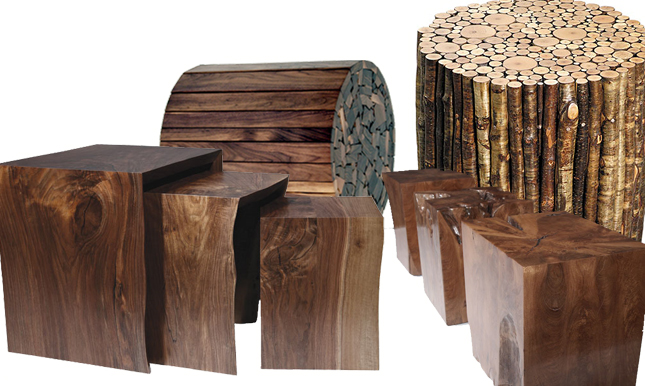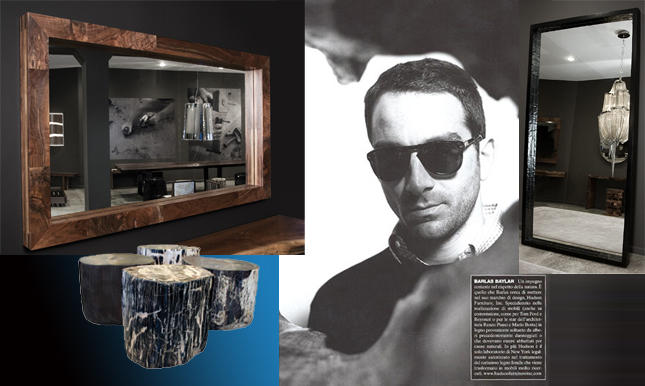Behind the Coverage, the Man: Barlas Baylar
Designing for the Present by Looking into the Past.
Barlas Baylar is the famous New York City furniture designer of minimalist works that combine natural elements with modern aesthetics. Touring his showrooms at Hudson Furniture is walking through a world where nature has been recast by architecture while the 21st Century pines for millennia past. There the evolution of chandeliers, tables, bed frames and their headboards may be appreciated. Metal, wood, glass, and stone have been re-created to furnish civilization. Chain chandeliers softly curve in waves of metallic piping that trace the descent of light through glass strands which drip as if fringe off a sleeve. The bittersweet majesty of expiring trees is remembered forever in the solid slabs of benches. Then there are those accessories appearing simultaneously stone and wood – petrified wood, naturally. Yet all the floor samples only suggest the bustle of Baylar’s busy NYC workshop.
Twenty-four craftsmen labor to turn Baylar’s ideas into the utilitarian artwork that can be found in celebrity apartments and upscale boutiques alike, with each piece unique and no two exactly the same. Through a background in production design and a family tradition in machinery manufacturing, Baylar founded Hudson Furniture to utilize old all-natural materials, modernized with industrial detail to create organic structures that change interiors into exteriors by recreating the universe without. Surfaces are not simply sanded down, but are burnished by hand with broken glass to reveal nature’s own eternal craftsmanship.
Concern for nature is a part of Baylar’s very designs, and not just passive admiration from afar. He is devoted to the preservation of nature, and uses only sustainable materials in his consoles, panels, sofas, and mirrors. Only dead and dying lumber, sourced domestically of salvaged arbor damaged by wind and storm, is used, with favorite varieties such as Claro Walnut, Black Walnut, Myrtle, Jasmine, Acacia, Satinwood, and Ebonized Pine removed by rightful owners to prevent damage to houses or other trees. Not a thing is left unused: scraps and leftovers of every irregularity are reworked into every design. And from the connections developed through family ties and personal experience of different fields, Baylar’s company is able to be sure of the origins of its materials, as the official approval of embassies and consulates can testify when necessary matters of import are involved. In fact, his firm is proud to be the city’s sole repository for legally harvested petrified wood. And so Baylar’s geometric designs, traditional joinery techniques, and hand-rubbed oil finishes will continue to return to nature – and emerge again to clothe civilization.







